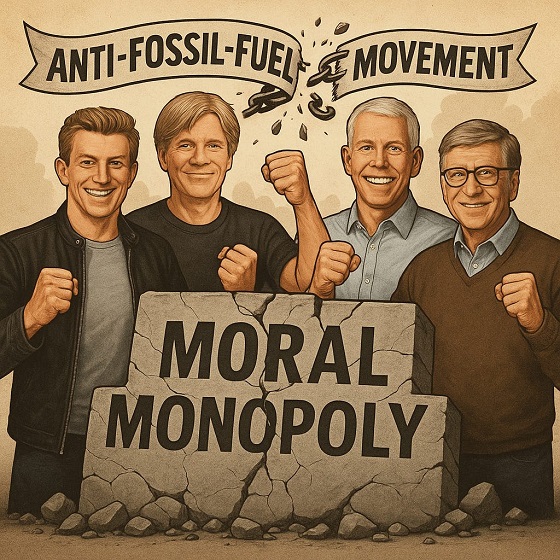Daily Caller
CNN’s Scott Jennings Says History Will Remember Biden As ‘Complete And Total Disgrace’ Over Hunter Pardoning


From the Daily Caller News Foundation
By Nicole Silverio
CNN senior political commentator Scott Jennings said Monday that President Joe Biden will be remembered as a “complete and total disgrace” over his decision to pardon his son, Hunter Biden.
Biden issued a formal pardon for his son Sunday evening after the White House assured the American public for months that he would not do so. Jennings argued that this action made the “strongest possible case for [President-elect] Donald Trump” by proving that the president blatantly lied to the American people only to ultimately protect his son in the end.
“Joe Biden is leaving office making the strongest possible case for Donald Trump that anybody could possibly make it and that’s that our government and our justice system is of, by and for the elites and nobody else,” Jennings said. “He ran to vanish Trumpism from our political system in this country and he has left it politically and now institutionally the strongest possible political force in this country. It is a complete and utter failure by the head of the Democratic Party and the President of the United States. Never again do I want to hear ‘oh, Donald Trump’s a liar, you can’t believe anything he says. Donald Trump will abuse his power, Donald Trump will only use the system to benefit himself and his family’ and so on and so forth … We are sitting on the biggest cover-up of who knows what crimes and Joe Biden amazingly knows exactly, roughly when it started.”
“He knows just about when it all started. He’s leaving office in complete and total disgrace, he is a liar and there is no other way to spin this today. This has nothing to do with Trump and everything to do with the character of Joe Biden.”
A jury convicted the president’s son in June on three felony charges related to his purchase of a Colt Cobra revolver in October 2018, alleging he knowingly bought the item while addicted to drugs and made false statements on the purchase form. He also faced nine charges related to his alleged failure to pay at least $1.4 million in taxes and his alleged filing of falsified tax paperwork, all of which Hunter pleaded guilty to.
In his statement announcing the pardoning, Biden said he has always emphasized telling Americans the truth and that he believes the charges against his son “led to a miscarriage of justice.”
“For my entire career I have followed a simple principle: just tell the American people the truth. They’ll be fair-minded. Here’s the truth: I believe in the justice system, but as I have wrestled with this, I also believe raw politics has infected this process and it led to a miscarriage of justice — and once I made this decision this weekend, there was no sense in delaying it further. I hope Americans will understand why a father and a President would come to this decision,” Biden said in his statement.
Biden and White House press secretary Karine Jean-Pierre have repeatedly said the president would not pardon Hunter. The press secretary made these claims during press briefings dating back to as early as July, and even claimed Biden would not ask President-elect Donald Trump to pardon his son in November.
Daily Caller
US Eating Canada’s Lunch While Liberals Stall – Trump Admin Announces Record-Shattering Energy Report


From the Daily Caller News Foundation
By Audrey Streb
The Department of Energy (DOE) touted a report on Wednesday which states that America broke records in liquefied natural gas (LNG) exports.
The U.S. became the first country to export over 10 million metric tonnes of LNG in one month in October, Reuters reported on Monday, citing preliminary data from the financial firm LSEG. The DOE posted on X on Wednesday that “there are big opportunities ahead for U.S. natural gas” and has consistently championed LNG in a sharp departure from former President Joe Biden’s crackdown on the resource.
“The fact that America’s oil and gas industry was able to pass this stunning milestone is impressive considering all the roadblocks to progress which were thrown up by the Biden administration,” David Blackmon, an energy and policy writer who spent 40 years in the oil and gas business, told the Daily Caller News Foundation. “It is a testament to both the resilience and innovative mindset of the industry and to the phenomenal wealth of America’s natural gas resource.”
Dear Readers:
As a nonprofit, we are dependent on the generosity of our readers.
Please consider making a small donation of any amount here.
Thank you!
🗣️RECORD BREAKING: For the first time, U.S. LNG exports are projected to surpass 10 million metric tons in a single month. There are big opportunities ahead for U.S. natural gas!
— U.S. Department of Energy (@ENERGY) November 5, 2025
Two facilities in Louisiana and Texas are responsible for the LNG export surge, according to Reuters. The U.S. LNG industry emerged as an energy sector giant in recent decades, with America now leading the world in LNG exports after being projected to be a net importer as late as 2010, according to S&P Global.
The Biden administration enacted a freeze on new LNG export permits and “intentionally buried a lot of data and released a skewed study to discredit the benefits of American LNG,” the DCNF previously reported. The environmental lobby applauded Biden’s January 2024 freeze on new LNG export terminals, though critics argued that the policy stalled investment, would not reduce emissions and undermined America’s global strategic interests.
In contrast, President Donald Trump sought opportunities to bolster LNG and reversed the new permit pause through a day-one executive order. Some energy policy experts told the DCNF that the reported milestone highlights the resiliency of the industry and the benefit of Trump’s “American energy dominance” agenda.
Daily Caller
Trump Reportedly Planning Ground Troops, Drone Strikes On Cartels In Mexico


From the Daily Caller News Foundation
The U.S. is reportedly planning to send troops and intelligence officers into Mexico to target drug cartels, former and current U.S. officials told NBC News Monday.
Training has reportedly already begun for such a mission, two current U.S. officials told NBC News, though no deployment to Mexico is imminent. The plan would deploy both U.S. military and CIA personnel on the ground in Mexico and include drone strikes on cartel targets, according to the report. If put into action, it would be a significant escalation in President Donald Trump’s ongoing campaign against Latin American drug cartels.
“The Trump administration is committed to utilizing an all-of-government approach to address the threats cartels pose to American citizens,” a senior administration official told NBC in response to the news.
Dear Readers:
As a nonprofit, we are dependent on the generosity of our readers.
Please consider making a small donation of any amount here.
Thank you!
If the mission is approved, the administration reportedly plans to keep the operation secret and not publicize any strikes, unlike the video-documented attacks on cartel boats in the Caribbean and Pacific that Trump has highlighted in the past, according to the report.
The plan calls for drone strikes against drug labs in Mexico as well as top cartel leaders, the officials told NBC News, and is not intended to undermine the Mexican government.
The U.S. troops will reportedly mostly be Joint Special Operations Command (JSOC) members, who operate under the authority of the intelligence community, two current officials told NBC News. Pat administrations have deployed the CIA to aid in missions against cartels from the Mexican government, but have never gotten involved directly as the reported plan prescribes.
The CIA and the White House did not immediately respond to the Daily Caller News Foundation’s request for comment.
-

 Alberta1 day ago
Alberta1 day agoAlberta government’s plan will improve access to MRIs and CT scans
-

 Business2 days ago
Business2 days agoTrump’s Tariffs Have Not Caused Economy To Collapse
-

 Daily Caller2 days ago
Daily Caller2 days agoTrump Reportedly Planning Ground Troops, Drone Strikes On Cartels In Mexico
-

 Economy1 day ago
Economy1 day agoWelcome to the Energy Humanist Club! Bill Gates breaks the moral monopoly against fossil fuels
-

 Brownstone Institute2 days ago
Brownstone Institute2 days agoBizarre Decisions about Nicotine Pouches Lead to the Wrong Products on Shelves
-

 International2 days ago
International2 days agoHours after Trump’s warning, Nigerian Christians massacred by Islamist gunmen
-

 Business1 day ago
Business1 day agoCarney government’s first budget should signal end to crippling ‘climate’ policies
-

 Business1 day ago
Business1 day agoNo Jobs Clause: Liberals Under Fire Over Stellantis Deal in Fiery Committee Showdown










